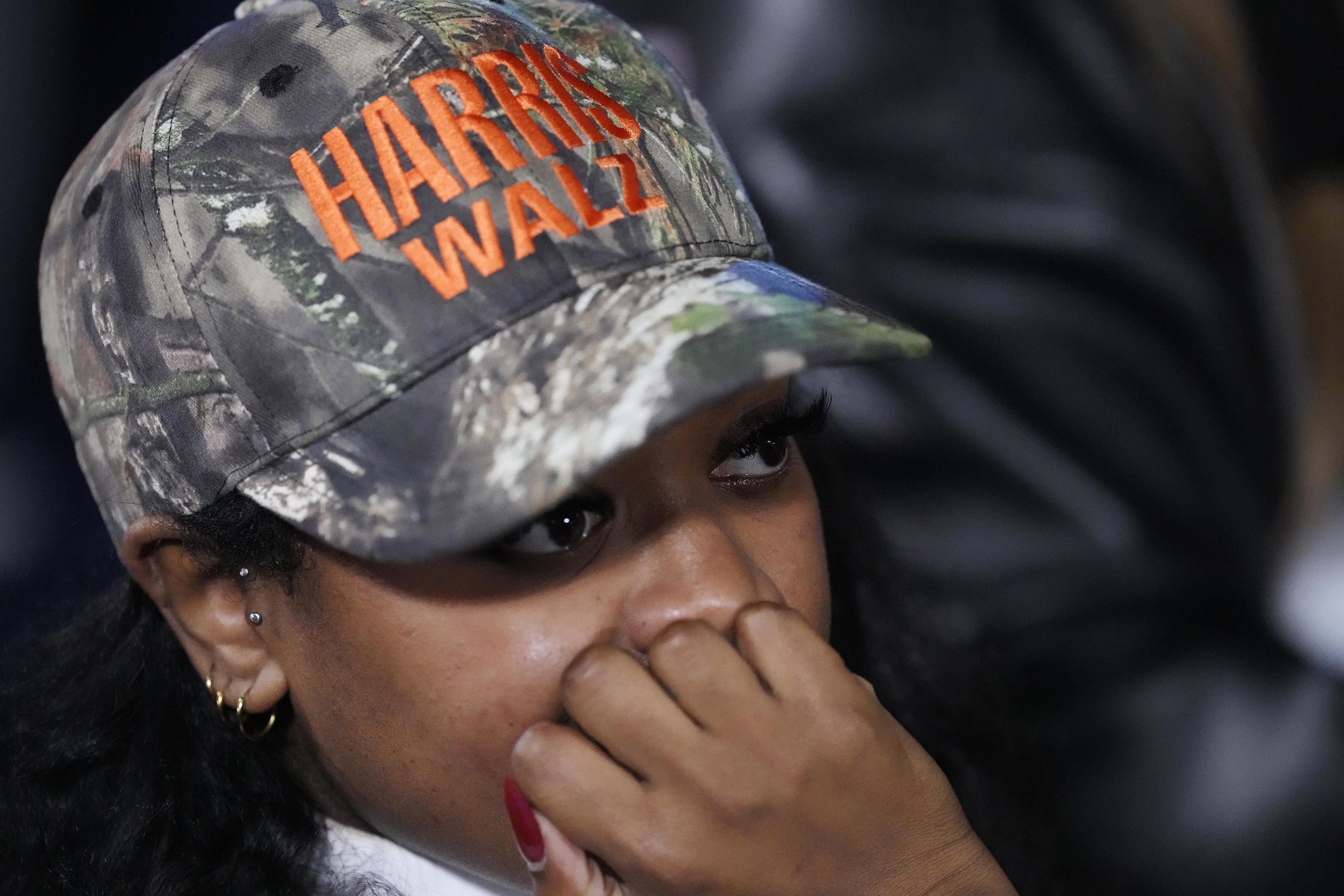It was a quarter to midnight in Washington when Cedric Richmond, the co-chair of Kamala Harris' campaign, walked to the stage in the central garden of Howard University in Washington and said: "We still have votes to count; we still have states where the winner has not been declared. We will continue throughout the night to ensure that every vote is scrutinized, that every voice is heard, so you will not hear from the vice president tonight, but tomorrow. Tomorrow she will be here again, not only to address the Howard University family and those who supported her, but to address the nation. So thank you. We believe in you. May God bless and keep you. Onward Howard University and onward Harris!"
Richmond turned around and walked, very upright, along the walkway connecting the stage to the backstage of the party, which had been built for Kamala Harris, accompanied by her husband Doug Emhoff, to take her triumphant walk to become the first woman to reach the presidency of the United States. The music playing on the campus resumed, but only briefly. In less than two minutes, it had stopped. The party had ended before it even began. The campus of the university founded by Washington's Black community in 1908 because they were not admitted to white universities, where she graduated in 1986, was empty. Kamala Harris had lost the elections to Donald Trump.
For the Democratic Party, it was a return to the past. On November 8, 2016, the same thing had happened. On that occasion, it was John Podesta, Hillary Clinton's campaign manager, who spoke. "Thank you! Thank you for being here all night. It has been a long night and a long campaign. But can we wait a little longer, right? They are counting the votes, and every vote must count. There are several states that still do not have a winner, so tonight we will not say anything. Listen to me... we should all go home and get some sleep... tomorrow we will have more to say. I also want to say to you and to all the people in the country who support Hillary that your voices and your enthusiasm mean so much to her and to Tim [strong>Caine, the Democratic vice-presidential candidate] and to all of us... We are proud of you!"
Eight years, two women, and the same message. Only with two differences. The first, irrelevant. The second, of historical dimensions. First, the anecdote: Podesta tried to uplift the people, while Richmond had an almost somber dignity. Then, the truly serious matter: Kamala Harris not only lost the elections. She also, almost certainly, received fewer votes than Donald Trump.
That is a cataclysm. Since 1992, only one Republican - George W. Bush, in 2004 - had received more votes than the Democrats. If in that period there had been two Republican presidents - Bush himself and Trump in 2016 - it was due to the anachronism of the Electoral College, a late 18th-century creation when the Enlightenment was not fully accepting the "passions" of the populace. The United States was transitioning from a predominantly white country to a mosaic of minorities. This is how the first black president, Barack Obama, came to power with the Democratic Party. And this is how the first female president, and the first non-white female president, Kamala Harris, was expected to follow. History was on the side of diversity. And the reaction symbolized by Donald Trump was nothing but a case of stubborn resistance to the changing times. George W. Bush became president in 2000 with a quarter-million fewer votes than Al Gore; Donald Trump did so in 2016 with three million fewer votes than Hillary Clinton. All models from all polls assumed that, even if Kamala Harris lost the presidency, she would receive more votes than her opponent.
The blow, therefore, to the Democratic Party and what it symbolizes, is enormous. Harris not only lost among white voters, which has been a constant for Democrats for seven decades. She also saw her support among minorities diminish. Harris, a mixed-race Indian and Caribbean person who studied at Howard University, a mediocre university, with a vice-presidential candidate, Tim Walz, who graduated from Chadron State College in Nebraska, failed to articulate a message for minorities and a significant portion of the working class, losing to two populists who, unlike her, came from Ivy League universities, the most exclusive in the world: Donald Trump from the University of Pennsylvania, and JD Vance from Harvard.
The empty campus of Howard was, in the early hours of Washington, the graveyard of not only the Democratic Party's plans but also of a significant part of the most educated sectors in the West. Harris had much more money than Trump; she had a much more united party than Trump; she had not insulted anyone, threatened to shoot anyone, put anyone in jail, or suspended the Constitution, or declared a "dictatorship for a day" like Trump. And yet, she lost across the board to a populist message from a politician convicted of 34 criminal offenses plus a civil case of sexual abuse. It was more than an electoral defeat; it was the defeat of a political model and a sign of social and political change in the US and perhaps in the world.
